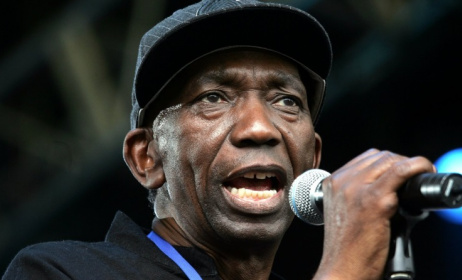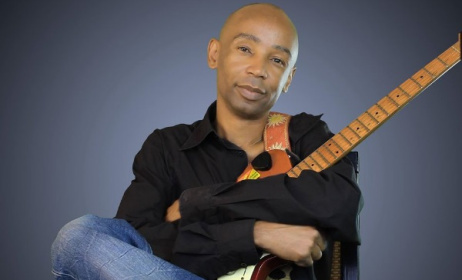Locals recall the early days of Thomas Mapfumo's career
The path walked by Zimbabwean Chimurenga music icon Thomas Mapfumo to be where he is today is one that requires bravery and perseverence. Many others would have hung up their boots after just a few strides.
 Thomas Mapfumo started his career as a kindergarten teacher. Photo: www.afropop.org
Thomas Mapfumo started his career as a kindergarten teacher. Photo: www.afropop.org
Dr Thomas Tafirenyika Mapfumo was born Michael Munhumumwe in 1945 in the farming town of Marandellas, now Marondera. According to Lion Songs, Banning Eyre's 2015 biography of the legend published by Duke University Press, Mapfumo had to grow up with his mother’s parents after his father, Tapfumaneyi Mupariwa, disappeared after impregnating his mother Janet Chinhamo.
Thomas’s mother and the related history is already well-documented. However, the legend of Thomas Mapfumo never touches on where he started his music career and how he first rose to stardom. A lot of people who saw him start his music career are feeling hurt by how the artist has seemingly overlooked the town that first managed to bring him into the spotlight: Mangula, now known as Mhangura.
According to Francisco Mariano, who saw a young Thomas Mapfumo start his career in Mhangura, “It is very embarrassing to hear Thomas narrate his life and leave out his stay in Mhangura. Ever since he rose high, he never came back to perform to the people who first saw talent in him, people who knew how good he was, even though the world knew little about him.”
During those early days, Mapfumo is said to have been employed by the Mangula Copper Mines as a kindergarten teacher. Because of his work schedule, he had ample time to practice his music. He also made use of the local women’s league’s instruments to rehearse.
“During the afternoons, Thomas would assemble his group to practice at Mhangura's ‘7 Million’ beer hall using instruments of the women’s league,” confirmed another local, Mr Makoshore, who also witnessed the rise of the icon.
It’s believed that in the late 1960s Mapfumo together with his bandmates, who were employed to keep chickens by the mine, renamed their outfit from Acid Band to the Hallelujah Chicken Run Band, which caused a stir in and around Mhangura.
Some of the first songs to be performed live by band include ‘Hove Yangu’ and ‘Wariyambutsa Dindingwe’. Most were sung in Shona. Over the years this language barrier did little to prevent Mapfumo from becoming countless fans all over the world.
Meanwhile, back in Mhangura, Mapfumo is believed to have promised his hand in marriage to one Esther Mpalasa, although he later ditched her when he moved to the capital Salisbury, now Harare. Mariano adds that a local girl named Toripa Katomba was also a girlfriend of the musician at some point. During his stay in Mhangura, Thomas Mapfumo is believed to have stayed at house number R-49.
Mapfumo later coined his sound as ‘Chimurenga’ music. In the late 1970s, however, his music was banned from the state-owned radio station as then-ruler Ian Smith felt it instigated violence and promoted the liberation struggle.
His music style influenced other popular musicians like Stella Chiweshe, Biggie Tembo, Farai Macheka, Brian Muteki and many others, who incorporated mbira-derived rhythms into their music while commenting on political, social and economic issues.
For nearly two decades, Mapfumo has been residing in Oregon in the USA, where his music is widely appreciated, albeit on the other side of the world to where it all began.
Originally published in The Telegraph (New Ziana), 11-18 July 2016.






























Comments
Log in or register to post comments